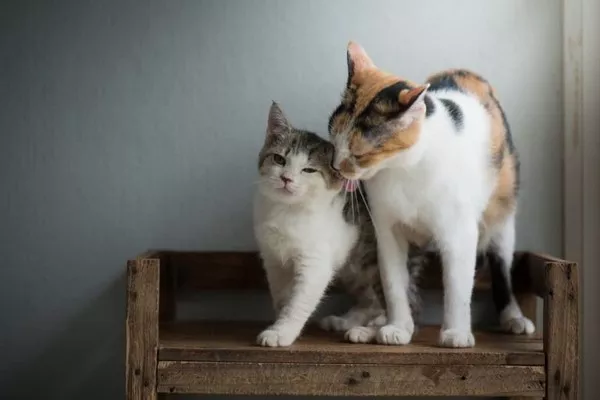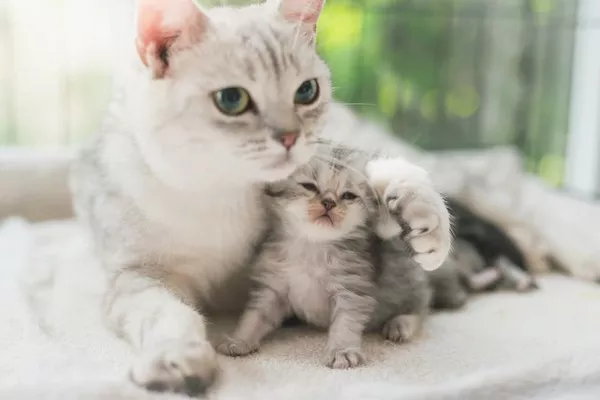Alaskan Malamutes and Siberian Huskies are two of the most popular and striking breeds among sled dogs, known for their strength, endurance, and captivating appearances. These breeds share common ancestry and were initially bred for similar purposes, but they have distinctive differences that make them unique in their own right. In this comprehensive guide, we’ll explore the nuances that set the Alaskan Malamute and Siberian Husky apart, covering everything from their history and physical characteristics to their temperament and care requirements.
Origin and History
What is the difference between Alaskan Malamute and Siberian Husky in terms of their origin and history? To understand the distinction between these two breeds, we must delve into their roots.
The Alaskan Malamute, as the name suggests, hails from Alaska and is one of the oldest Arctic sled dogs. They were initially bred by the native Inuit people, known as the Mahlemiut, and were primarily used for hauling heavy freight. These dogs played a pivotal role in early Arctic exploration and the Gold Rush.
On the other hand, Siberian Huskies trace their lineage back to the Chukchi people in Siberia. They were bred to pull lighter loads over long distances and were known for their endurance. In the early 20th century, Siberian Huskies gained prominence in the United States when they were used for racing, which led to their recognition by the American Kennel Club in 1930.
Physical Characteristics
When it comes to physical characteristics, there are several key distinctions that set the Alaskan Malamute and Siberian Husky apart.
1. Size
The most obvious difference is size. Alaskan Malamutes are notably larger than Siberian Huskies. Malamutes typically weigh between 75 to 85 pounds (34 to 39 kilograms) and stand around 23 to 25 inches (58 to 64 centimeters) at the shoulder. In contrast, Siberian Huskies are smaller, weighing around 35 to 60 pounds (16 to 27 kilograms) and measuring about 20 to 23.5 inches (51 to 60 centimeters) in height.
2. Coat
The coats of these breeds also differ. Alaskan Malamutes have a dense, double coat that serves to keep them warm in the harsh Arctic climate. Their coat is typically shorter and requires less maintenance than the Siberian Husky’s longer and fluffier double coat. Siberian Huskies come in a variety of coat colors and patterns, while Alaskan Malamutes are typically seen in shades of gray and white.
3. Eyes
Another striking feature that differentiates these two breeds is their eye color. Siberian Huskies are known for their captivating blue eyes, though they can also have brown, green, or amber eyes. Alaskan Malamutes, on the other hand, have brown eyes, and blue eyes are considered a fault according to breed standards.
4. Tail
The tail of the two breeds also varies. Alaskan Malamutes have a plume-like tail that is carried over their back, while Siberian Huskies have a sickle-shaped tail that is often carried in a graceful, gentle curve.
Temperament
Understanding the temperament of Alaskan Malamutes and Siberian Huskies is essential when deciding which breed is the right fit for your lifestyle. Both breeds have unique personalities.
1. Alaskan Malamute Temperament
Alaskan Malamutes are known for their friendly and affectionate nature. They are loyal to their families and make excellent companions. However, they have a strong independent streak and can be a bit stubborn. Malamutes are good with children and are generally gentle, but early socialization is essential to ensure they are well-behaved around other animals.
Due to their strong pack instinct, Malamutes can be prone to dominance issues if not properly trained and socialized. They require firm, consistent training from an early age to establish boundaries and respect.
2. Siberian Husky Temperament
Siberian Huskies are often described as social and outgoing. They have a more independent and mischievous temperament compared to Alaskan Malamutes. Huskies are known for their friendly demeanor and are often good with children. They are, however, known escape artists and have a penchant for digging, so a secure fence is a must.
Huskies have a strong prey drive and may not be the best choice for households with small pets, such as cats or rabbits. Their independent nature means they can be a bit challenging to train, and they may test boundaries. Early obedience training and socialization are crucial for a well-behaved Husky.
Exercise Needs
Both Alaskan Malamutes and Siberian Huskies are active breeds that require a lot of exercise. However, the intensity of their exercise needs varies.
Alaskan Malamutes were bred for hauling heavy loads, and they are strong and durable. They enjoy long walks and hikes, but they are not as high-energy as Siberian Huskies. A daily walk and some playtime should suffice for a Malamute, although they will happily accept more exercise.
Siberian Huskies have an almost boundless amount of energy. They thrive on intense physical activities and mental stimulation. Running, hiking, and even dog sports are great outlets for their energy. A bored Husky can become destructive, so it’s important to keep them engaged and active.
Grooming and Maintenance
Another aspect where you’ll find a difference between Alaskan Malamutes and Siberian Huskies is in their grooming and maintenance requirements.
1. Alaskan Malamute Grooming
Malamutes have a dense, double coat that sheds seasonally. During shedding season, which occurs twice a year, their coat can be quite challenging to manage. Regular brushing is essential to remove loose fur and prevent matting. Malamutes are generally clean dogs and have minimal doggy odor. They don’t require frequent bathing.
2. Siberian Husky Grooming
Siberian Huskies also have a double coat, but they are known for being “self-cleaning” dogs. This means they are relatively clean and have minimal odor. They do shed, but their shedding is typically less intense than that of Alaskan Malamutes. Brushing is still necessary, especially during seasonal changes. Huskies, like Malamutes, do not require frequent baths.
Health Considerations
Both Alaskan Malamutes and Siberian Huskies are generally healthy breeds, but they are prone to specific health issues.
1. Alaskan Malamute Health
Alaskan Malamutes are prone to hip dysplasia, a genetic condition that affects the hip joint and can lead to arthritis. They can also suffer from a hereditary condition called chondrodysplasia, which can cause dwarfism in puppies. Responsible breeding is crucial to minimize the risk of these conditions.
2. Siberian Husky Health
Siberian Huskies are generally a healthy breed, but they can be prone to eye conditions such as cataracts and progressive retinal atrophy. Additionally, they may experience hip dysplasia and autoimmune disorders. Regular check-ups with a veterinarian are essential to monitor their health.
Training and Socialization
Training and socialization are critical aspects of owning either an Alaskan Malamute or a Siberian Husky.
1. Alaskan Malamute Training
Malamutes are intelligent dogs, but their independent nature can make them a bit challenging to train. They respond well to positive reinforcement and consistency. Early socialization is essential to ensure they are well-behaved around other animals and people. Obedience training is crucial to establish boundaries and prevent dominance issues.
2. Siberian Husky Training
Huskies are known for their independent streak, and they can be willful. Training a Husky requires patience and consistency. Positive reinforcement techniques work well with them. Early socialization is vital to help them get along with other dogs and animals.
Choosing the Right Breed for You
To decide whether an Alaskan Malamute or a Siberian Husky is the right fit for your lifestyle, consider the following factors:
1. Activity Level
If you’re an active person who enjoys outdoor activities and can provide ample exercise, a Siberian Husky might be a good match. However, if you prefer a slightly less active but still adventurous lifestyle, an Alaskan Malamute could be a better choice.
2. Living Space
Both breeds can adapt to apartment living if they receive enough exercise, but they thrive in homes with ample space and a secure yard. Malamutes, due to their larger size, may require more space.
3. Allergies
If you or someone in your household has allergies, consider the fact that both breeds shed and have double coats, which can be an issue for those with allergies.
4. Training Commitment
Both breeds require consistent training and socialization, but Huskies may require more patience and persistence due to their independent nature.
Compatibility with Other Pets
Consider the pets you already have or plan to bring into your home. Malamutes and Huskies have different temperaments, and this can affect how well they get along with other animals.
Climate
Both breeds are adapted to cold weather, but Malamutes are better suited to extremely cold climates, while Huskies can tolerate a wider range of temperatures.
Conclusion
In summary, the choice between an Alaskan Malamute and a Siberian Husky depends on your lifestyle, activity level, and ability to provide the necessary care and training. Both breeds have their unique characteristics and charm, making them wonderful additions to the right family.
While Alaskan Malamutes are larger and have a more reserved nature, Siberian Huskies are known for their smaller size and outgoing personalities. Whether you choose the gentle giant or the spirited explorer, both breeds can provide companionship, loyalty, and a lifetime of adventure for the right owner. Make sure to thoroughly research and consider your own circumstances and needs before deciding on the perfect sled dog for you.
Related Topics:
How long does an alaskan malamute live?
How to Groom an Alaskan Malamute: A Comprehensive Guide
Are Alaskan Malamutes Good with Other Dogs?


























